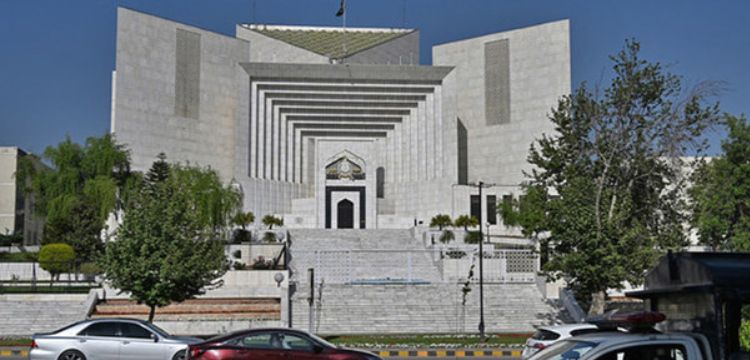[vc_row][vc_column][vc_column_text dp_text_size=”size-4″]
Justice Athar Minallah of the Supreme Court of Pakistan has brought attention to a crucial aspect of the Constitution, particularly Article 212, which empowers citizens to seek compensation from public officials who fail in their constitutional duties.
Justice Minallah underscored that the Constitution explicitly grants citizens the right to seek redress for wrongful acts committed by government officials or individuals in service to Pakistan, encompassing those engaged in tax or cess collection.
These observations were made in response to the failure of state functionaries to conduct elections within the mandated 90-day period. Justice Minallah highlighted citizens’ entitlement to various legal remedies, including damages, when their constitutional rights are violated due to the misuse of authority, neglect of public duties, or abuse of power.
Also Read: Supreme Court Fines Husband For Withholding Haq Mehr
The uniqueness of this constitutional provision lies in its direct bestowal of the right to pursue public law remedies for wrongful acts by three categories of public authorities. However, despite its existence, this right has been largely overlooked by the courts and seldom invoked by victims of public power abuse. Justice Minallah lamented the lack of initiative, since the Constitution’s inception, to establish the special courts originally intended by the framers.
Even in the absence of these special courts, the right to claim remedies against the wrongful acts of public authorities remains intact. For instance, civil servants have sought remedies from alternative forums, including High Courts, when the Service Tribunal was non-functional.
Justice Minallah emphasized the profound importance of this constitutional right, recognizing its potential to empower citizens to hold public authorities accountable and prevent the abuse of public power. He stressed that the effective enforcement of this right could encourage public participation in curbing power abuse and constitutional violations.
Also Read: Supreme Court Cancels Military Trials For Civilians
The judge also acknowledged the possibility of citizens exercising this right against those who have abrogated, subverted, or held the Constitution in abeyance. In such cases, courts have broad discretion to design remedies, including compensatory and exemplary damages, to address constitutional rights violations and prevent future occurrences.
In the current context of Pakistan, where citizens are governed by unelected caretakers in violation of the Constitution, Justice Minallah pointed out that public authorities, including the President, Governors, and the Election Commission, have failed in their constitutional duties.
This failure renders them liable for actions against their wrongful acts. He emphasized the courts’ duty to end impunity for constitutional violations and ensure the prompt and lawful resolution of claims against public authorities.
Justice Minallah concluded by asserting that the Election Commission must conduct delayed elections in a fair, free, and transparent manner, allowing citizens to exercise their right to vote and potentially seek remedies for any wrongful acts that have infringed upon their constitutional rights.
[/vc_column_text][/vc_column][/vc_row]











